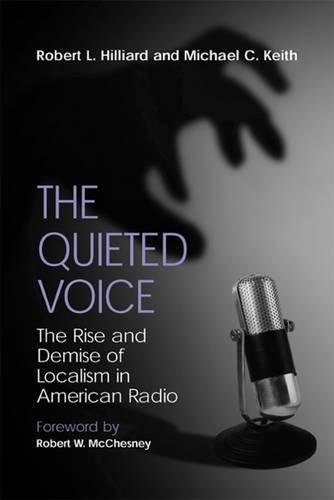Articles liés à The Quieted Voice: The Rise And Demise Of Localism...

Synopsis
An increasing awareness of the erosion of local and public service programming. How has American radio - once a grassroots, community-based medium - become a generic service that primarily benefits owners and shareholders and prohibits its listeners from receiving diversity of opinions, ideas, and entertainment through local programming? In "The Quieted Voice: The Rise and Demise of Localism in American Radio", Robert L. Hilliard and Michael C. Keith blame the government's continual deregulation of radio and the corporate obsession with the bottom line in the wake of the far-reaching and controversial Telecommunications Act of 1996. Fighting for greater democratization of the airwaves, Hilliard and Keith call for a return to localism to save radio from rampant media conglomeration and ever-narrowing music playlists - and to save Americans from corporate and government control of public information. "The Quieted Voice" details radio's obligation to broadcast in the public's interest. Hilliard and Keith trace the origins of the public trusteeship behind the medium and argue that local programming is essential to the fulfillment of this responsibility. From historical and critical perspectives, they examine the decline of community-centered programming and outline the efforts of media watchdog and special interest groups that have vigorously opposed the decline of democracy and diversity in American radio.
Les informations fournies dans la section « Synopsis » peuvent faire référence à une autre édition de ce titre.
À propos de l?auteur
Robert L. Hilliard is a professor of media arts at Emerson College and former chief of Public Broadcasting at the FCC and chair of the Federal Interagency Media Committee. Among his thirty books are Writing for Television, Radio and New Media, and, with Michael Keith, The Broadcast Century and Beyond, Waves of Rancor, and Dirty Discourse. He consults and lectures on media and education in the United States and abroad. Michael C. Keith teaches communications at Boston College and is the author of twenty books, including The Radio Station and the memoir The Next Better Place. He was a professional broadcaster for more than a decade and has served as the chair of education at the Museum of Broadcast Communications Chicago. One of the nation's leading anticorporate media advocates, Robert W. McChesney is a professor in the Institute of Communications Research and the Graduate School of Library and Information Science the University of Illinois at Urbana-Champaign. He is the author of the award-winning Rich Media, Poor Democracy: Communications Politics in Dubious Times and other books.
Les informations fournies dans la section « A propos du livre » peuvent faire référence à une autre édition de ce titre.
EUR 3,23 expédition vers Etats-Unis
Destinations, frais et délaisRésultats de recherche pour The Quieted Voice: The Rise And Demise Of Localism...
The Quieted Voice: The Rise and Demise of Localism in American Radio
Vendeur : HPB-Red, Dallas, TX, Etats-Unis
paperback. Etat : Good. Connecting readers with great books since 1972! Used textbooks may not include companion materials such as access codes, etc. May have some wear or writing/highlighting. We ship orders daily and Customer Service is our top priority! N° de réf. du vendeur S_446900912
Quantité disponible : 1 disponible(s)
The Quieted Voice : The Rise and Demise of Localism in American Radio
Vendeur : Better World Books, Mishawaka, IN, Etats-Unis
Etat : Very Good. 1st. Former library book; may include library markings. Used book that is in excellent condition. May show signs of wear or have minor defects. N° de réf. du vendeur GRP99039271
Quantité disponible : 2 disponible(s)
The Quieted Voice: The Rise and Demise of Localism in American Radio
Vendeur : Recycle Bookstore, San Jose, CA, Etats-Unis
Paperback. Etat : Very Good. Book has light rubbing on front and back, slight bow to front cover, light shelf wear, otherwise this is an excellent copy, book has tight binding, clean pages. N° de réf. du vendeur 976668
Quantité disponible : 1 disponible(s)
The Quieted Voice: The Rise and Demise of Localism in American Radio
Vendeur : Pistil Books Online, IOBA, Seattle, WA, Etats-Unis
Trade Paperback. Etat : Fine. A clean, unmarked book with a tight binding. 242 pages. N° de réf. du vendeur 140854
Quantité disponible : 1 disponible(s)

